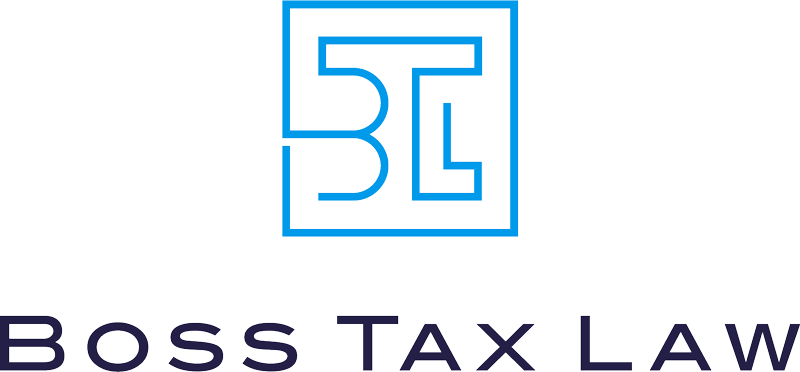If you’ve filed a Tax Court petition, the IRS will likely require you to go through Appeals before your case proceeds to trial attorneys. This isn’t just a bureaucratic hurdle – it’s one of your best opportunities to resolve your tax dispute without the time, expense, and uncertainty of courtroom litigation.
As a former IRS agent and current tax attorney, I’ve seen firsthand how proper preparation can mean the difference between paying the full assessment and achieving a favorable settlement. Here’s your complete guide to preparing for an IRS Appeals meeting that gets results.
What Makes IRS Appeals Different from Examination
Unlike IRS examination officers who focus on maximizing revenue and following the letter of the law, Appeals officers are trained specifically to evaluate the hazards of litigation – essentially, what are the realistic chances the IRS wins if your case goes to Tax Court?
This fundamental difference creates settlement opportunities that didn’t exist during your audit. Appeals officers have the authority and incentive to resolve cases efficiently, but only if you present your case professionally and persuasively.
The Four Pillars of Successful IRS Appeals Preparation
1. Master Your Legal Position with Cold, Hard Analysis
Gut feelings and “my accountant said it was okay” won’t cut it in Appeals. You need comprehensive legal analysis that addresses:
- Specific tax laws and regulations supporting your position
- Relevant court cases with similar fact patterns
- Realistic assessment of your chances in Tax Court
Appeals officers must rule based on law and consider trial outcomes. If you can’t articulate the legal foundation for your position, you’re likely paying the full assessment.
2. Create Documentation That Tells Your Story
Appeals officers juggle multiple cases simultaneously. Make their job easy with organized, chronological documentation that proves your case without requiring them to connect dots.
For business expense disputes, don’t just dump receipts on the table. Instead, provide:
- Timeline showing business purpose
- Supporting contracts and correspondence
- Email communications demonstrating necessity
- Photos or other visual evidence when relevant
- Organized tabs for easy reference
Remember: if the Appeals officer has to hunt for information, they’re more likely to rule against you.
3. Address Every IRS Argument Head-On
The biggest mistake taxpayers make is focusing only on why they’re right while ignoring the IRS’s specific objections. You must systematically rebut every argument in the examination report.
For example, if the IRS disallowed your home office deduction, don’t just prove you have a home office. Explain why their specific legal objections are incorrect and demonstrate how your situation meets all regulatory requirements.
Submit detailed written responses rather than relying on verbal explanations during the meeting. A comprehensive brief addressing each issue with supporting law and documentation is essential.
4. Position Settlement Strategically
Even with an 80% chance of winning in Tax Court, consider the practical costs:
- Attorney fees
- Time investment
- Stress and uncertainty
- Small risk of total loss
Appeals officers understand these “hazards of litigation” work both ways – the IRS also faces costs and risks in trial. Present settlement discussions as a business decision benefiting both parties, not begging for mercy.
The Pre-Meeting Brief: Your Secret Weapon
Most people think the Appeals meeting is where you make your case. This is wrong. The real work happens beforehand with your written brief.
Your comprehensive brief should include:
- Executive summary of your position
- Detailed factual background
- Legal analysis for each disputed issue
- Organized supporting documentation with exhibit tabs
- Proposed resolution with business justification
Submit this well in advance of any scheduled meeting. If the Appeals officer reads it and agrees with your position, the meeting may become a formality. If they have concerns, they’ll address them upfront, allowing you to respond strategically.
Three Critical Mistakes That Destroy Appeals Cases
Mistake #1: Treating Appeals Like Casual Conversation
This is a legal proceeding with formal authority to settle your case. Casual explanations and unsupported reliance claims won’t work. Bring legal proof and documentation.
Mistake #2: Overwhelming with Irrelevant Information
More isn’t always better. Focus precisely on disputed issues. I’ve seen representatives try to overwhelm Appeals officers with irrelevant paperwork, which only creates frustration and resistance.
Mistake #3: Getting Emotional or Adversarial
Appeals officers are independent within the IRS structure. Treat them with respect and professionalism, even if you’re frustrated with your audit experience. They have significant discretion in settlement decisions and represent your best chance for resolution.
Why You Only Get One Shot at Appeals
Here’s the reality: you typically get only one opportunity with Appeals. Blow this meeting due to poor preparation, and your next stop is Tax Court with IRS trial attorneys – involving significantly more time, expense, and uncertainty.
The Appeals process isn’t just about avoiding Tax Court; it’s about securing the best possible resolution while you maintain maximum leverage.
Key Takeaways for Tax Court Petitioners
- Appeals often occurs after filing your Tax Court petition as a settlement conference
- Preparation is everything – Appeals officers can only work with what you provide
- Legal analysis trumps opinions – support every position with law and precedent
- Organization matters – make it easy for the officer to rule in your favor
- Strategic positioning works – frame settlements as business decisions, not charity
- Professional presentation is crucial – treat this as the legal proceeding it is
When to Seek Professional Help
The Appeals process requires specific legal knowledge and strategic thinking that can determine whether you pay the full assessment or achieve a favorable settlement. As a former IRS agent who now represents taxpayers, I’ve helped clients save hundreds of thousands in taxes and penalties they didn’t actually owe.
If you’re facing IRS Appeals or considering Tax Court, don’t navigate this complex process alone. The stakes are too high, and the opportunity for resolution too valuable to risk with inadequate preparation.
